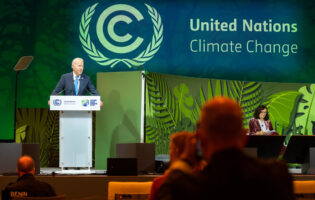The Firewall

Alexander Privitera
AGI Non-Resident Senior Fellow
Alexander Privitera a Geoeconomics Non-Resident Senior Fellow at AGI. He is a columnist at BRINK news and professor at Marconi University. He was previously Senior Policy Advisor at the European Banking Federation and was the head of European affairs at Commerzbank AG. He focuses primarily on Germany’s European policies and their impact on relations between the United States and Europe. Previously, Mr. Privitera was the Washington-based correspondent for the leading German news channel, N24. As a journalist, over the past two decades he has been posted to Berlin, Bonn, Brussels, and Rome. Mr. Privitera was born in Rome, Italy, and holds a degree in Political Science (International Relations and Economics) from La Sapienza University in Rome.
Much has been written about the need to build a firewall around the healthier part of the euro zone to protect it from a crippling debt crisis that has already devoured a number of countries. Much has also been said about Germany’s reluctance to commit additional financial resources to help create such a firewall. In a speech on Monday this week, the Managing Director of the International Monetary Fund (IMF), Christine Lagarde, once again reminded Germany of the dire consequences of inaction: “What we must all understand is that this is a defining moment. It is not about saving any one country or region. It is about saving the world from a downward economic spiral. It is about avoiding a 1930s moment, in which inaction, insularity, and rigid ideology combine to cause a collapse in global demand. The longer we wait, the worse it will get.” She even suggested that the Eurozone should introduce Eurobonds as a sign of its unwavering commitment to the common currency. Officially at least, Germany has resisted both requests so far.
In fact, in a first reaction, the German Government shrugged off the suggestion that the cap for the combined forces of the current bailout fund, the European Financial Stability Facility (EFSF) and its successor, the European Stability Mechanism (ESM), be doubled to at least a trillion from its current 500 billion Euro level. The apparent rebuff was considered by many observers as a further sign that Berlin is determined to stick to its strategy of fiscal austerity.
However, Germany’s public posturing should not be taken at face value. There may be more flexibility in Berlin than immediately meets the eye.
Firstly, Germany needs to stand firm in its stance as negotiations heat up around the shape of the new fiscal compact. The European summit on January 30th is designed to finalize the compact, which Germany has turned into the cornerstone of the euro zone’s path to safety. In fact, some members of the governing coalition in Berlin have suggested that the fiscal compact is the price for Germany’s increasing financial assistance. Nevertheless, European governments are still struggling to find a compromise. Germany openly criticized a draft circulated in European capitals just a few days ago as a watered down version of the agreement reached last December by twenty six EU countries. Although a new draft appears to take Germany’s concerns into account, discussions are ongoing. Berlin’s negotiating position would be weakened dramatically if it were to agree to any additional funds for the bailout funds now.
Secondly, Germany has begun to broaden its argument away from exclusively focusing on fiscal rectitude. In a speech in Washington late last week, Foreign Minister Guido Westerwelle openly admitted that “budget cuts alone won’t do the trick.” He also suggested, however, that erecting a firewall too early might jeopardize structural reforms in some peripheral countries such as Spain and Italy, in particular. “From the very beginning we have focused on a double track strategy”, he said, “linking solidarity with partners under pressure with a firm commitment to fix the euro zone and put all members on a path of fiscal responsibility.” Importantly, he did not rule out strengthening the bailout funds. Instead, he concluded by saying: “The key is therefore to strike the right balance between easing the short term pain and laying the foundations for long term gain.”
Thirdly, for all those who point out how Germany likes to draw red lines in the sand, it would be helpful to remember how many times Chancellor Angela Merkel has crossed those same lines and by doing so has increased German commitments to the rescue effort.
Overall, Merkel still believes that her incremental approach is working. At the same time, she is mindful of the fact that her key euro zone partners, such as France’s President Nicolas Sarkozy and Italy’s Prime Minister Mario Monti, need more German support to solidify their domestic political power. Merkel will more than likely agree to add more German funds to the EFSF and ESM, but not to the point of seeing the funds double in size. She may also decide not to announce such a step at the upcoming summit on January 30th, but rather to hint that it will come at the next gathering of European leaders scheduled for March.
Size and timing matter when it comes to increasing the firepower of the bailout funds, and that is where things could still go awry. However, even a hint that Germany is willing to go in that direction would be significant at this stage of the crisis. German officials are well aware of the fact that the next months could be crucial in restoring confidence in the euro zone. They seem to have finally made the choice to stem the fire more forcefully. In a recent policy paper, the Peterson Institute for International Economics, a Washington based think tank, suggests looking at what European Union leaders are actually doing rather than just listening to what they say. Particularly in the coming weeks, we should indeed all keep our eyes wide open








